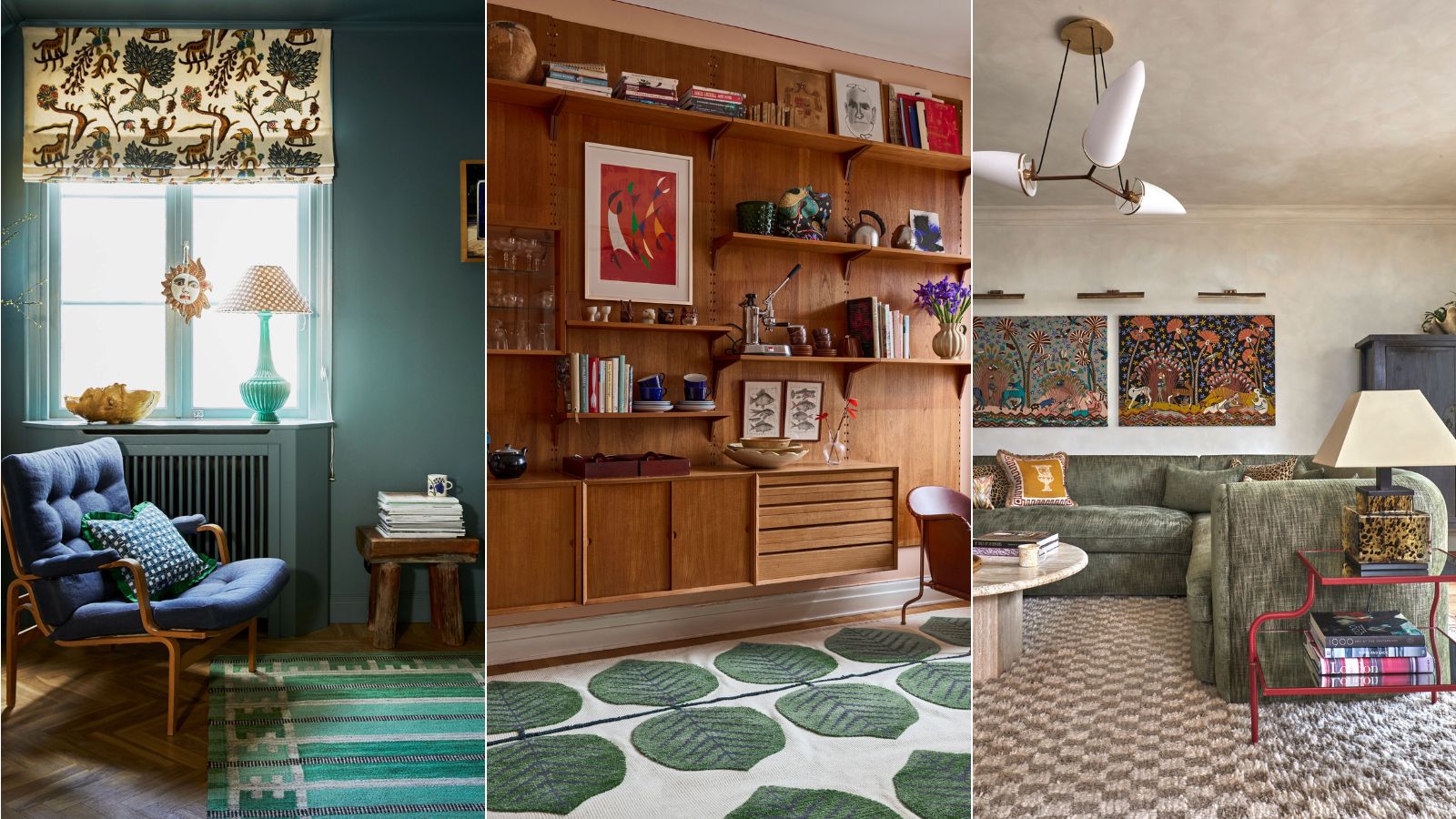
There are plenty of ways to make your home feel more unique, and more like 'you'. It sounds like a simple task, but actually, it can be rather hard to take a step back, break it all down, and figure out what steps you need to take in order to create spaces that feel one-of-a-kind.
The essence of a home lies in its ability to reflect the personalities and experiences of its owners. So, how do you make a space that is brimming with a sense of individuality that sets it apart from the rest?
By embracing the unexpected, collecting, curating, and celebrating the smaller details, you can transform your home into a reflection of your uniqueness. Here, we share interior designer's favorite ways to make a home feel more unique.
6 Ways To Make Your Home Feel More Unique
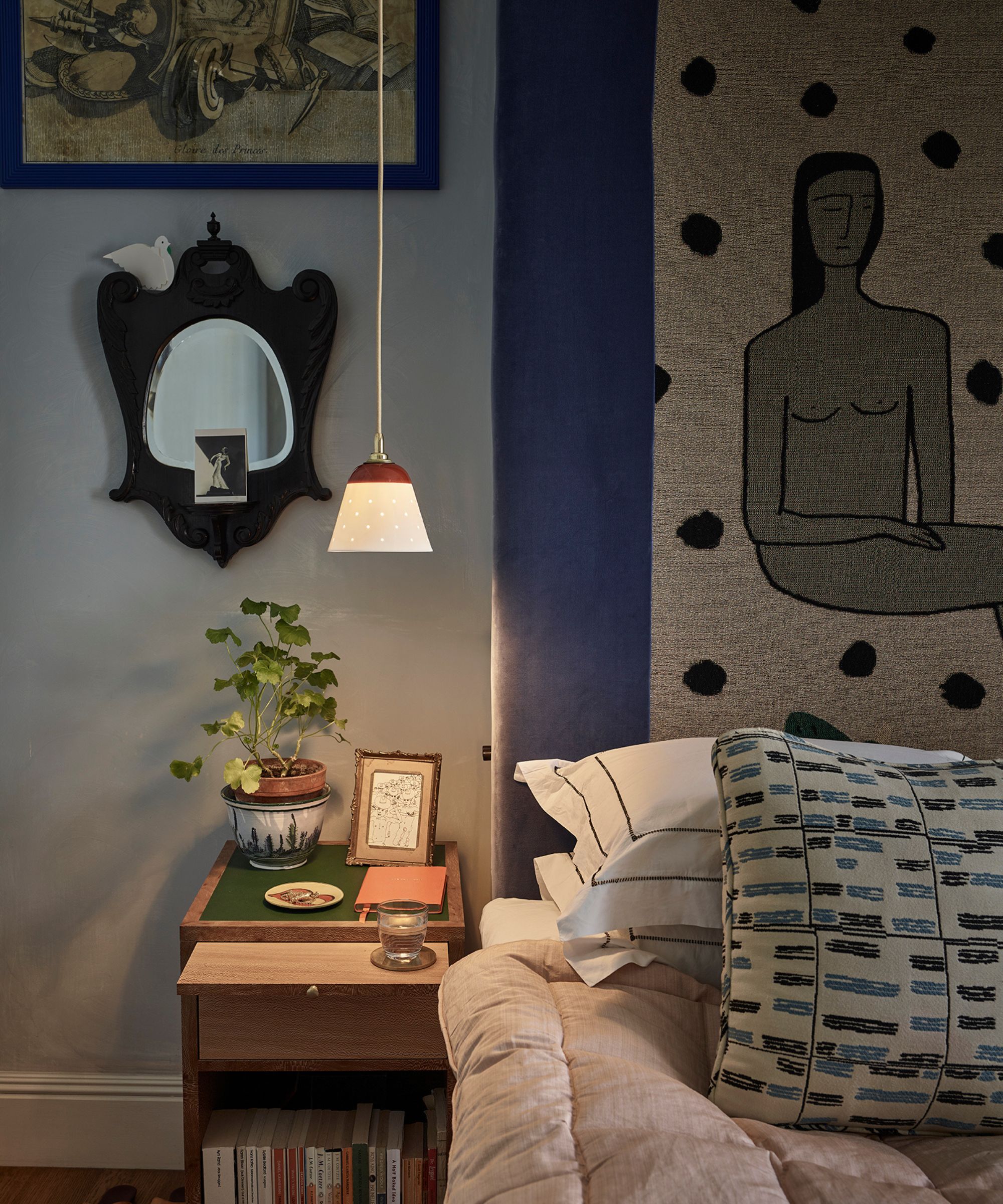
First things first, it is important to establish that 'unique' doesn't always mean the most in-your-face, hodgepodge, bold, and eclectic spaces. When looking to create a more unique home, the things you should be focusing on are the pieces that feel and reflect you, your family, and your story.
'The best way to make your home feel more unique is to add elements that feel personal,' says designer Kathy Kuo. 'Travel souvenirs, artwork, heirlooms, and beloved books are all great ways to add unique pops of personality to your space,' she suggests.
Here, we dive into the 6 things interior designers recommend implementing in your home to help you create a more unique space.
1. Use unconventional colors

While decorating with neutrals and a muted color scheme often dominates color trends, more unconventional, unexpected colors can take a space from ordinary to extraordinary. When experimenting with unexpected hues, it's all about finding the right balance to create visual interest that doesn't feel jarring.
'Committing to unconventional color is one way to create a unique home feel,' suggests Abbie Naber, founder of A. Naber Design and creator of the space above. 'Never underestimate the power that paint can bring to a space. It's an economical way to truly create a one-of-a-kind look and feel and break away from the norm,' she explains. In this charming children's bedroom, seen above, Abbie chose to drench the walls in Sherwin Williams' Swanky Gray that reads like a cool purple.
Color has the power to transform a space and evoke emotions. From deep, moody hues to vibrant shades like tangerine or fuschia to bring energy, color elicits a unique response for everyone. By strategically thinking about the colors you use in your home, you can create atmospheres that resonate with your desired mood or theme.
This sentiment also works for color pairings. Look to unexpected color combinations to create a more distinctive style. Pairing warm tones with cool tones or contrasting complementary colors can create a visually stimulating environment.
2. Mix design styles and eras

Weaving together design elements like furniture and decor pieces from various periods and styles creates spaces that are rich in character and charm. It is common knowledge now that matching furniture sets is a surefire way to make your home look dated in 2024. Mix things up by implementing some contrast in interior design with some unexpected red or an eclectic balance of eras – like a mid-century credenza paired with a folky rug.
Don't be afraid to blend old and new, traditional and contemporary. While seemingly contrasting, many design movements share common elements such as proportion, scale, tones, and symmetry. By identifying these shared traits, you can seamlessly merge these styles together to create cohesive spaces.
Interior designer Kristina Khersonsky of STUDIO KEETA, champions the mixing of design styles and eras as a means of infusing spaces with a sense of individuality. 'Originality in homes derives from when the space truly represents the homeowner and their interests, lifestyle, and travels – what better way to live than in a space surrounded by pieces you love,' she says.
'There are so many ways to personalize and add unique touches - both big and small. When it comes to furniture, don’t limit yourself to one specific genre or era. Try mixing pieces that were not originally designed to be paired together, and find the common thread between them. This may look like piecing together furnishings from different design periods or styles, but holding to a color palette you’ve curated and honed over time,' she advises.
3. Take time to collect and curate artwork

Art is transformative in any space. Serving as the personality of a room, take the time to collect and curate pieces that resonate with you to elevate your home. Art is a reflection of your identity and experiences. Whether you're drawn to bold abstract paintings, portraits, or sculptures, each piece should reflect your unique tastes.
'Making a unique space simply means getting unique things,' says designer Linda Hayslett of LH. Designs. 'People often think original artwork has to be expensive, but original artwork can be the children's artwork over the years framed nicely, a project you've always wanted to tackle like a large papier-mache piece or something that your parents painted when they were in retirement. Having original art that only you have is priceless.'
Experiment with different arrangements and groupings to find a layout that enhances the overall aesthetic of your room. Remember that art doesn't have to be confined to gallery wall ideas, consider incorporating prints, paintings, and objects to your shelving to add dimension and nail the bookshelf wealth aesthetic.
'Additionally, try collecting art from more than one source or mix mediums,' adds Kristina. 'You can find treasures at flea markets or estate sales. These are great places to find one-off, collected pieces. Trust your gut reaction and go with the items that make you feel a spark!'
4. Don't overlook the smaller details
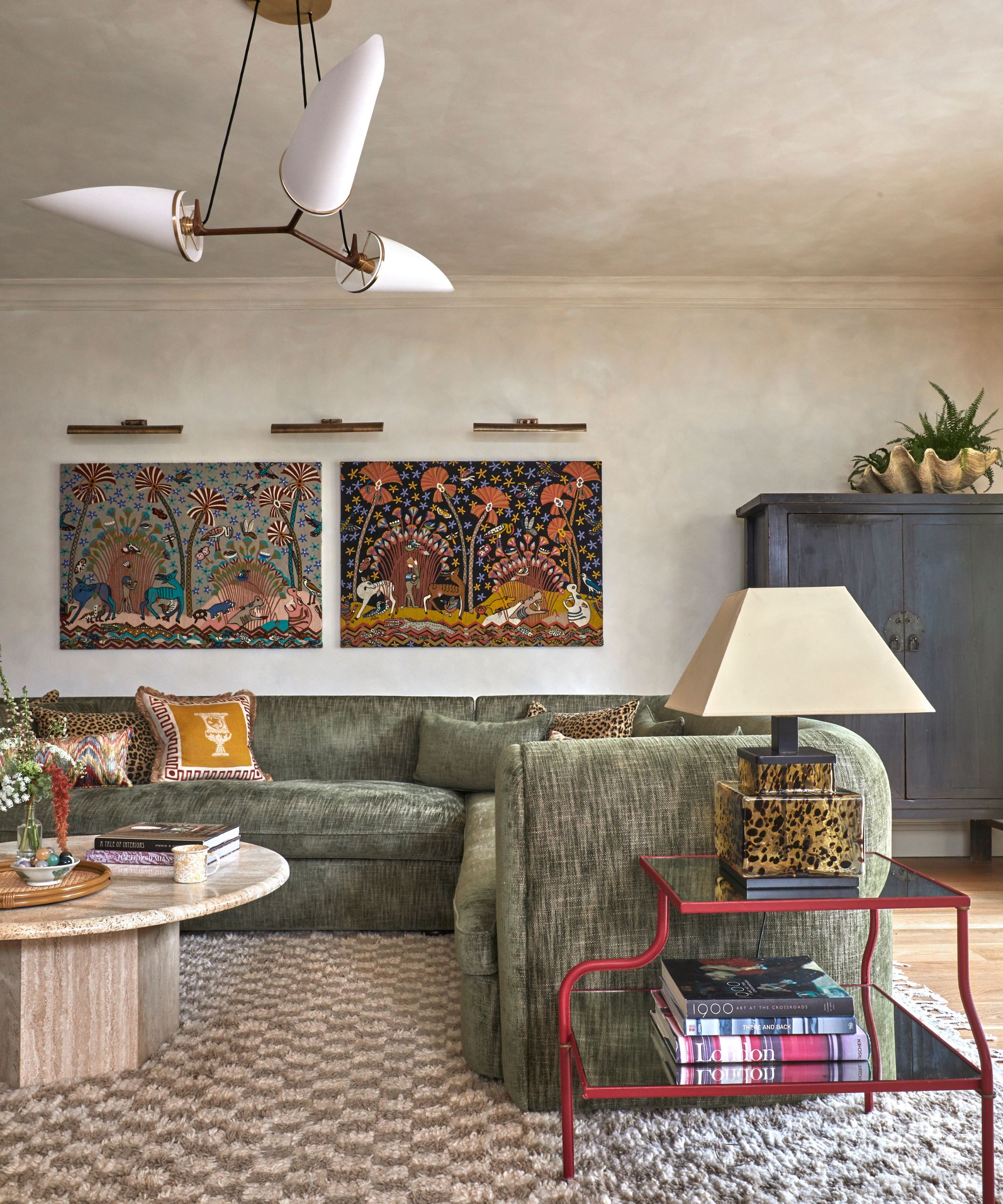
When thinking about an overall scheme for a room or entire home, we tend to think of the bigger picture: paint colors, furniture, and interior design style. But it's often the smaller details that hold the power to transform a space and make it feel truly unique. The devil truly is in the details, it's those seemingly insignificant elements like the texture of a fabric, the hardware, a decorative accent, or an object that collectively contribute to the overall feel of a space.
From selecting the perfect hardware for your cabinets to choosing the right trim for your curtains, or a selection of accessories that reflect your hobbies and interests; look for ways to incorporate elements that hold personal meaning to you.
'Since we all have the same types of furnishings in our homes, more or less, the key to distinction is in your art and accessories,' explains designer Bethany Adams. 'Walk into any living room and you're likely to see a sofa, two chairs, and a coffee table. But what is hanging over the mantle? What special vase, book, or candle is burning on the table? These are the things that really tell the story of who you are and the life you've led. They invite conversation, and let you talk about yourself and your adventures. These things needn't be fancy or expensive, they just need to be the things you love.'
'For smaller changes - opt for swapping out standard hardware for something vintage or something a bit more unexpected,' suggests STUDIO KEETA's Kristina. 'Don’t be afraid to invest in something special, as the details are what make a large impact.'
5. Shop vintage for unique finds
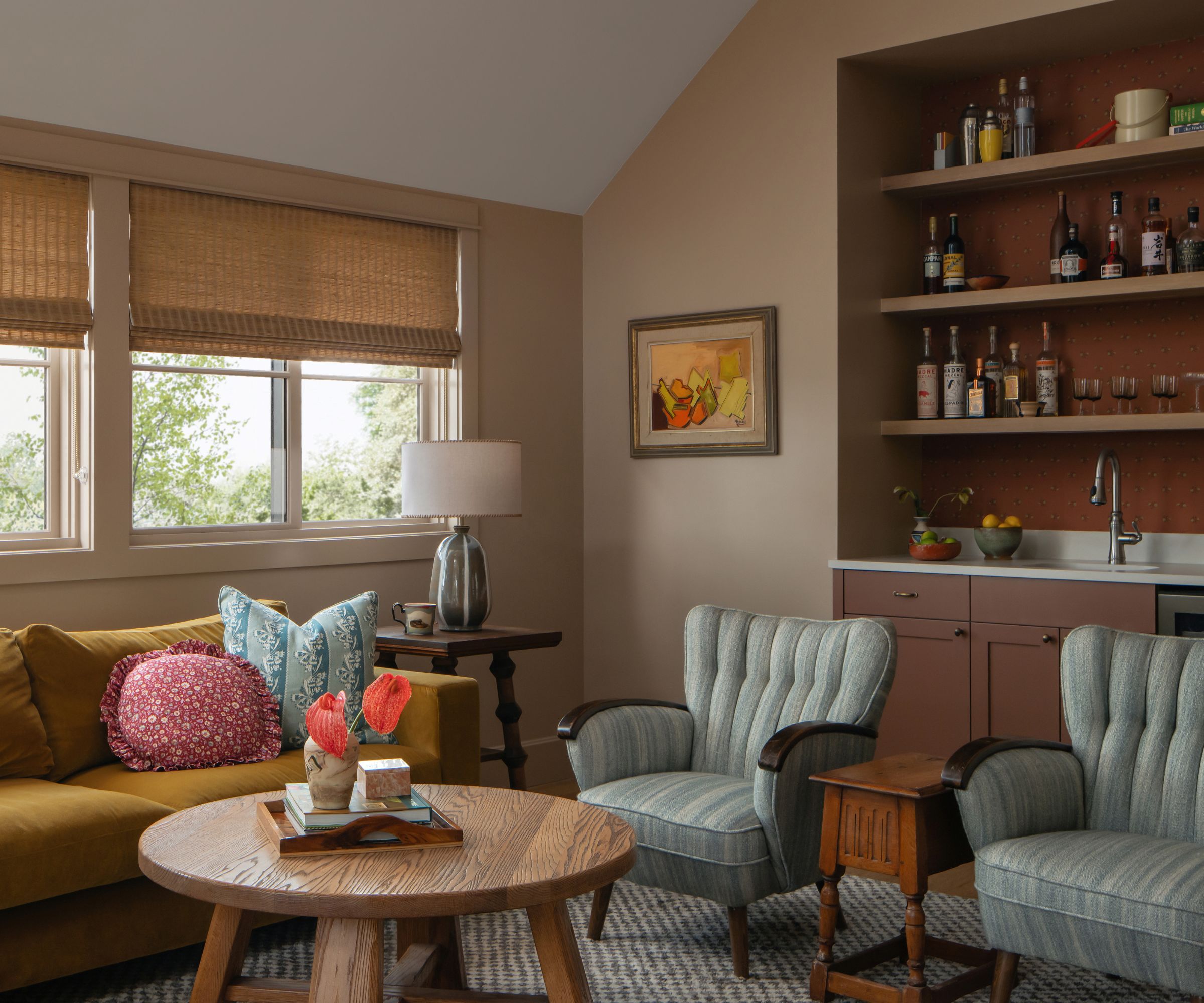
While contemporary design trends often dominate the market, decorating with vintage pieces allows you to create interiors that are truly one-of-a-kind. They tell a story, spark conversation, and imbue spaces with a sense of authenticity that is unmatched by their modern counterparts.
'I’ve found that homes that really stand out to me as one of a kind are the ones that have that hard-to-achieve ‘collected’ feel,' says designer Shannon Eddings. 'To create this look I recommend mixing in a lot of antique furnishings and decorative items,' she suggests. 'Almost every room that I swoon over has the ‘vintage’ factor. Find a pair of unique old, side tables or cool vintage art and build from there. I love to purchase vintage swivel chairs and recover them. It’s a sure way to guarantee nobody else will have the same pair of chairs as you! Just remember to keep the old balanced with contemporary to achieve the old-meets-new transitional aesthetic rather than the granny meets thrift store vibe.'
Keep an open mind and be willing to think outside the box when shopping for vintage treasures. You never know what hidden gems you might uncover, so trust your instincts and let your personal style guide you. While shopping for antiques sounds rather daunting (and expensive) your local junk or thrift shops can hold a wealth of treasures. And whenever you travel seek out an antique store, yard sale, or antique fair and just see what catches your eye.
'Running out and getting something that everyone has from the same store makes a room feel uninteresting, so it is best to curate things by buying unique items at a thrift store, yard sale, flea market, or even at your parents' house,' adds Linda.
6. Surround yourself with things that make you happy
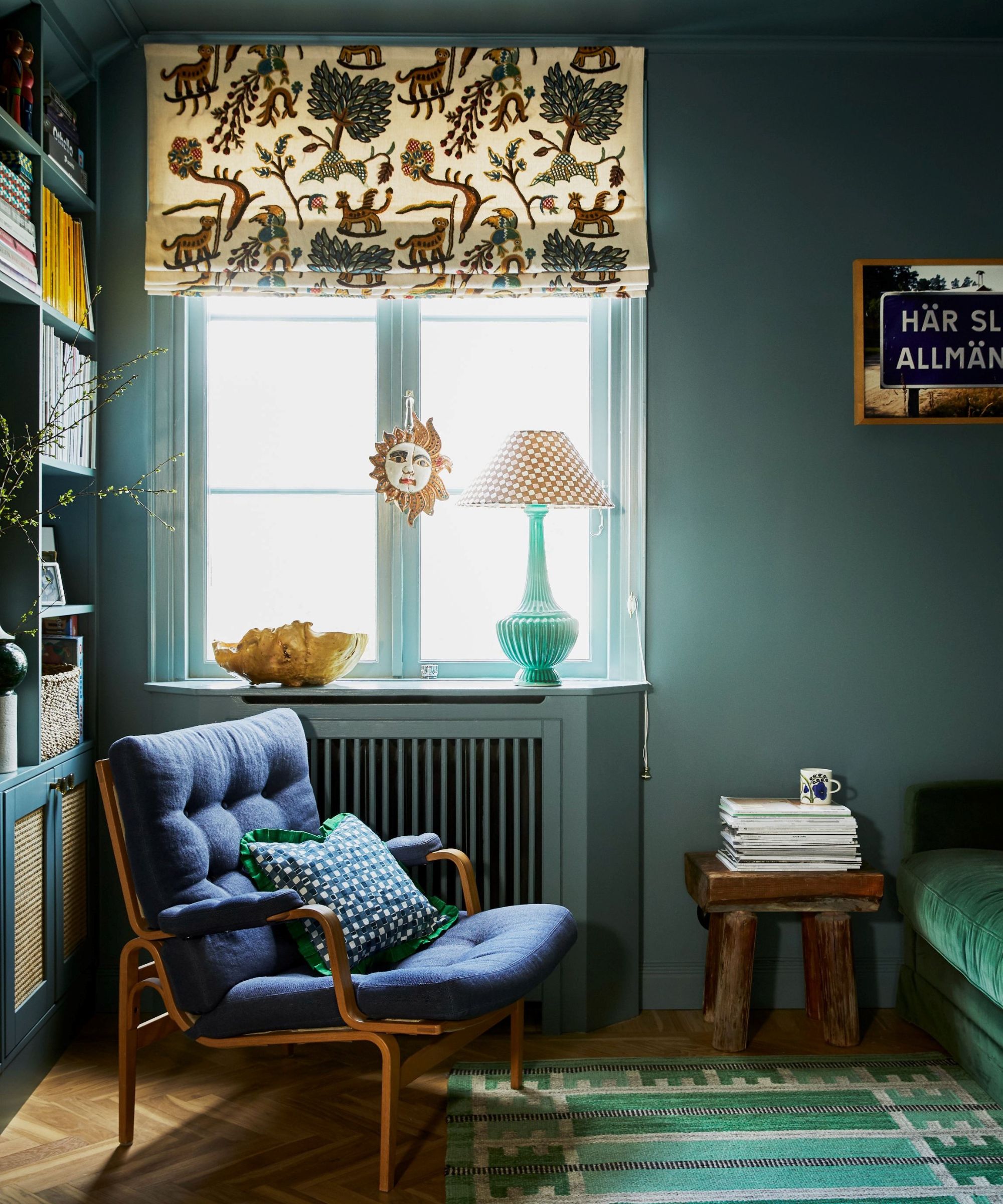
At its core, interior design is about creating environments that evoke positive emotions, and reflect the personalities and lifestyles of those who live within them. A home should be a sanctuary, so surrounding yourself with things that bring you joy is key to creating a space that makes you feel happy, comfortable, and safe.
'Forget following trends and focus on what makes your heart sing,' advises Emily Brown of Emily Lauren Interiors. 'Embrace the power of personal stories such as vintage finds, family heirlooms, meaningful art, and your favorite colors to create a space that reflects your unique personality, not a magazine spread or Pinterest board.'
When curating your home, take inventory of the things that bring you happiness. Whether that is a beloved piece of artwork, a cozy reading nook bathed in natural light, or a collection of cherished mementos gathered from holidays or family that hold sentimental value. These personal touches transform your space into one that reflects your unique identity and makes it so much more interesting.
'Hone in on what makes you feel inspired, comfortable, and happy and surround yourself with these elements, like color, pattern, and materials,' agrees Molly Torres Portnof, founder of DATE Interiors.
The best part about creating a space that feels uniquely you is that it is entirely subjective. One person's perfect scheme or another's nightmare. So try not to place too much importance on passing trends or what you think your friends will love, and look to things that really make you happy.
Let your creativity guide you, and trust your instincts to curate spaces that reflect you and your family. Whether you're drawn to unconventional colors, mixing design styles, curating artwork to cherishing the smaller details, or shopping vintage – the crucial step is surrounding yourself with things that make you happy.







